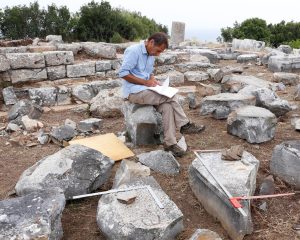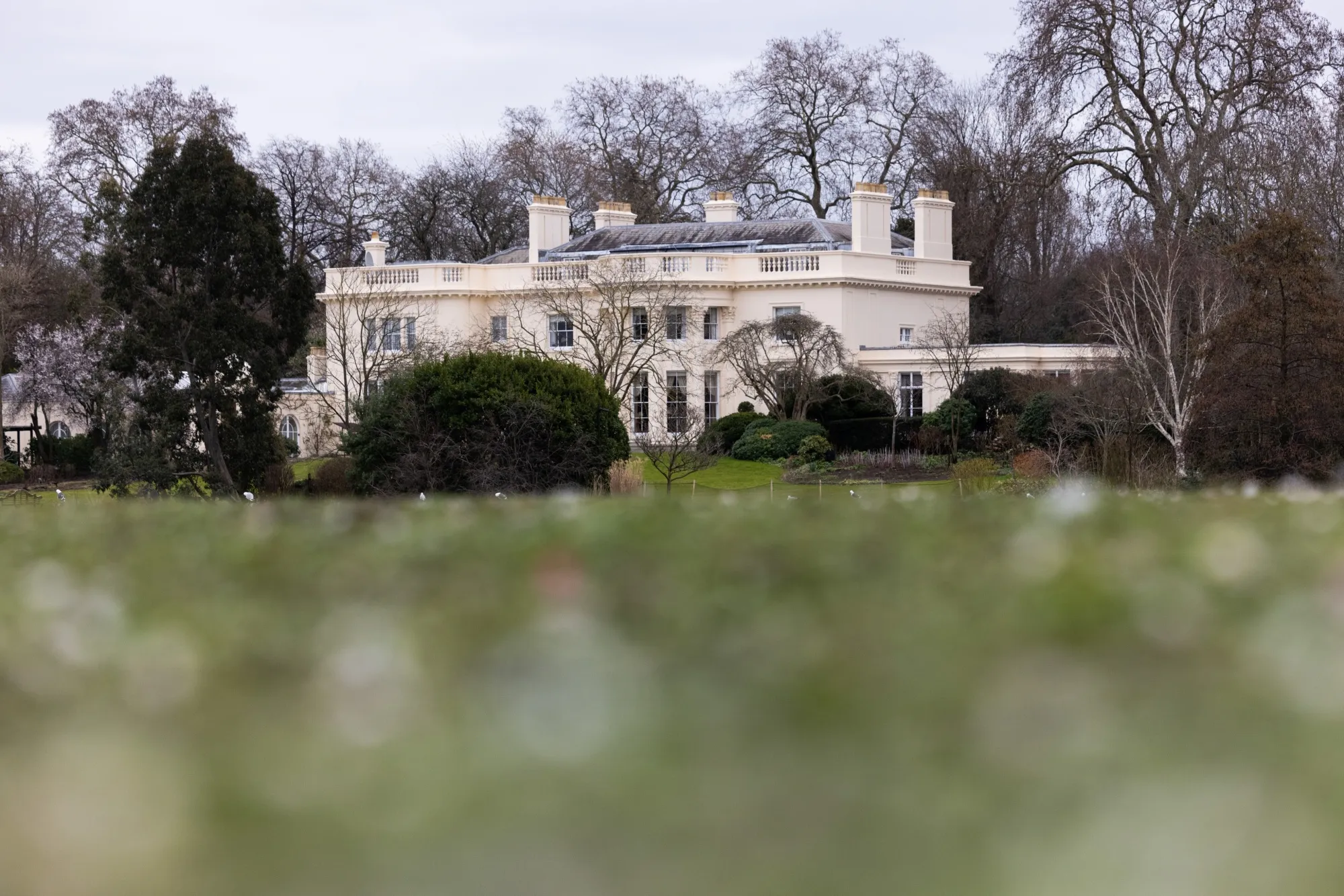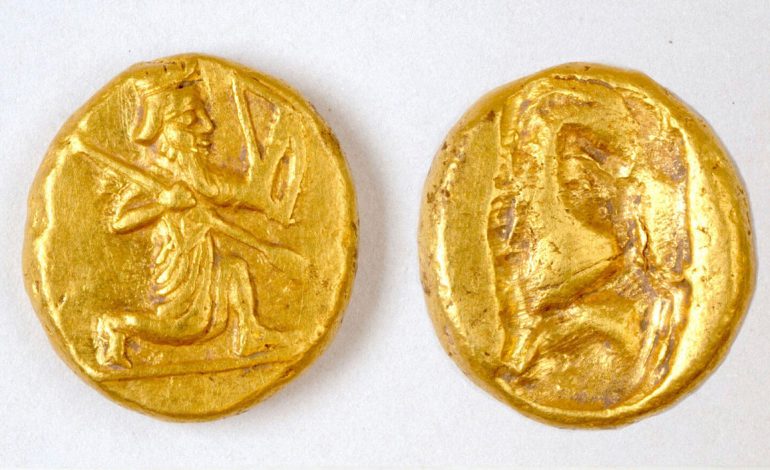A team of archaeologists from the University of Michigan’s Notion Archaeological Project have made a remarkable discovery – a hoard of gold coins dating back to the Persian Empire, they said in a statement.

Photo credit: University of Michigan
The “very rare” find, announced last week, was unearthed in a small pot buried beneath a house in the ancient Greek city of Notion, which was a part of the Persian Empire.
The coins, depicting a kneeling archer, are consistent with the daric, a type of gold coin used throughout the Persian Empire from the late 6th century B.C. until Alexander the Great’s conquest in 330 B.C. These darics were primarily used to pay mercenary troops, highlighting the importance of military power in the empire’s expansion and maintenance.
The discovery of the last year, made public last week after receiving permission from the Turkish Ministry of Culture and Tourism, has been hailed as “spectacular” by experts.
Researchers believe the hoard, which also includes other artifacts, was likely buried for safekeeping during a period of conflict in and around Notion. They speculate that the owners were unable to retrieve their treasure due to unforeseen circumstances.
“No one ever buries a hoard of coins, especially precious metal coins, without intending to retrieve it. So only the gravest misfortune can explain the preservation of such a treasure,” Christopher Ratté, a professor of classical studies at the University of Michigan and director of the Notion Archaeological Project, said.
The discovery of these coins, some dating back to the 5th century B.C., will provide invaluable insights into the history of the Persian Empire. They will serve as a key reference point for researchers studying the timeline of the daric and provide a deeper understanding of the economic and military practices of the era.









